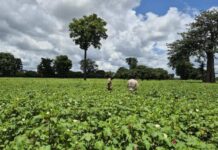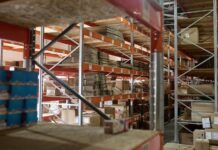The textile industry is growingly under pressure to embrace sustainability and shift to circular models. In Africa, the EU-funded UNEP InTex project has been instrumental in driving this transformation. Concluding its first phase in December 2024, the InTex project empowered textiles SMEs and technical organizations in Kenya, South Africa, and Tunisia to adopt life-cycle thinking and circular practices.
A success story comes from Kenya, where Moi University, the second public University of the country, is now looking at becoming a Centre of Excellence on LCA for Kenya and East Africa, providing trainings not only to companies but also to other stakeholders of the textiles value chain. Through InTex and UNEP experts, the university built its LCA expertise and helped Kenyan SMEs in developing strategies to lower the environmental footprint of their textile products. This helped foster strong industry-academia partnerships and boosted the skills of staff in Moi.
The project also helped Moi University in fostering partnerships with institutions across the Global South. Prof Josphat Igadwa says “Thanks to a connection established during the InTex Project, with a supplier of banana fibers, Moi University joined a consortium of organizations (universities and private sector) from Kenya, Uganda and Pakistan and secured funding from SMEP, another UN funded project, to test the production of spinnable fibers from banana stems, as an alternative material for textiles”, showcasing the potential of local, sustainable resources and the value of partnerships. InTex’s success in Kenya demonstrates how capacity building and knowledge sharing empower local actors to drive sustainable development in the textile sector.
The InTex project achievements across Africa highlight the advantages of using LCA as a method to drive sustainable production choices for a competitive textile industry.






























